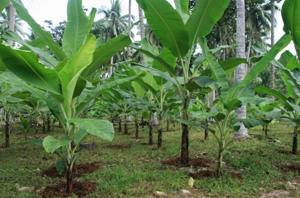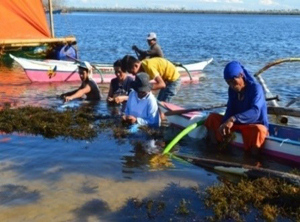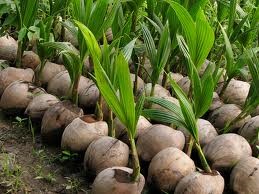 Science and Technology Action Frontline for Emergencies and Hazards (SAFE) is a technology transfer modality initiated by the Philippine Council for Agriculture, Aquatic and Natural Resources Research and Development of the Department of Science and Technology (DOST-PCAARRD) for resilient agri-based enterprises.
Science and Technology Action Frontline for Emergencies and Hazards (SAFE) is a technology transfer modality initiated by the Philippine Council for Agriculture, Aquatic and Natural Resources Research and Development of the Department of Science and Technology (DOST-PCAARRD) for resilient agri-based enterprises.
It provides S&T-based interventions to prevent or prepare for climate and environment related emergencies and hazards (E&H) in the Agriculture, Aquatic, and Natural Resources (AANR) sector.
This is DOST-PCAARRD’s direct contribution to disaster risk reduction and management as well as post-disaster community rehabilitation and reinforcement in the country.
It also aims to establish and maintain an institutional Quick Response Management Program as a technology transfer innovation in response to various emergencies and hazards especially in cases of ecological imbalance brought about by climate change, pollution, and other anthropogenic factors.
Beneficiaries of the SAFE modality are farming and fishing communities and other agri-based enterprises.
 SAFE Components include SAFE Iwas; SAFE Ligtas; SAFE Rescue (Pest & Disease); capacity building; organization and policy; information, education, and communication (IEC) development; promotion and awareness; and information and communications technology (ICT) and ICT build-up.
SAFE Components include SAFE Iwas; SAFE Ligtas; SAFE Rescue (Pest & Disease); capacity building; organization and policy; information, education, and communication (IEC) development; promotion and awareness; and information and communications technology (ICT) and ICT build-up.
SAFE Iwas are pre-disaster risk reduction activities, which include preparedness or contingency planning, warning and evacuation, and consolidation of preparations for next disasters. It also includes mitigation, risk assessment, and prevention through hazard mapping, hazard and vulnerability assessment, and structural and non-structural measures.
 Meanwhile, SAFE Ligtas are post-disaster recovery activities and rehabilitation or restoration of basic services and functions, which takes weeks to months to complete. It also includes reconstruction in the form of full resumption of services and preventive measures, which takes months to years to complete.
Meanwhile, SAFE Ligtas are post-disaster recovery activities and rehabilitation or restoration of basic services and functions, which takes weeks to months to complete. It also includes reconstruction in the form of full resumption of services and preventive measures, which takes months to years to complete.
Projects on bamboo, cacao, rice, rootcrops, vegetables, banana, and coconut were completed in four regions.
Still being conducted in five different Regions are projects on coffee, vegetables, swine, rice, corn, oyster mushroom, tilapia, pili, and bamboo.
